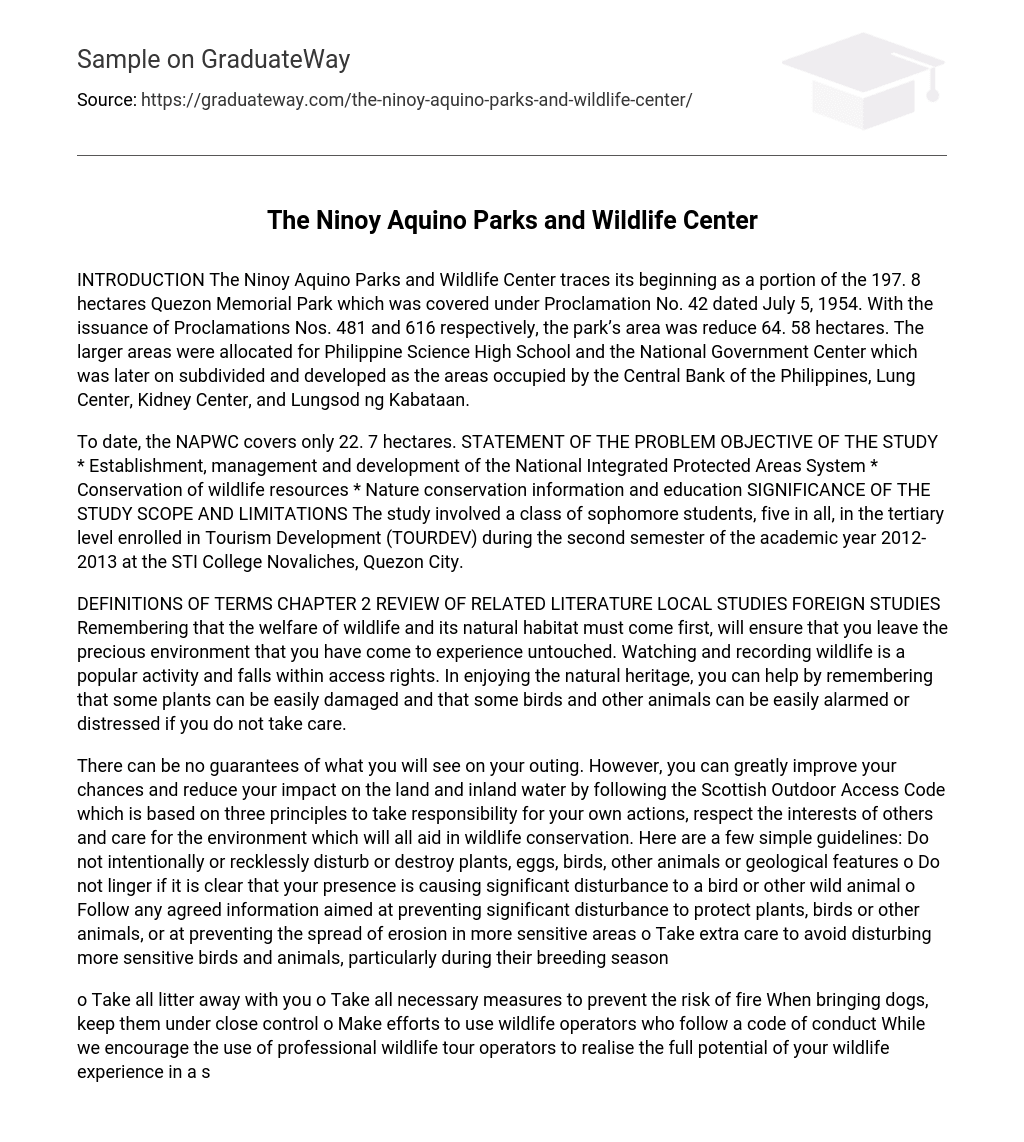INTRODUCTION
The Ninoy Aquino Parks and Wildlife Center traces its beginning as a portion of the 197. 8 hectares Quezon Memorial Park which was covered under Proclamation No. 42 dated July 5, 1954. With the issuance of Proclamations Nos. 481 and 616 respectively, the park’s area was reduce 64. 58 hectares.
The larger areas were allocated for Philippine Science High School and the National Government Center which was later on subdivided and developed as the areas occupied by the Central Bank of the Philippines, Lung Center, Kidney Center, and Lungsod ng Kabataan. To date, the NAPWC covers only 22. 7 hectares.
STATEMENT OF THE PROBLEM OBJECTIVE OF THE STUDY
- Establishment, management and development of the National Integrated Protected Areas System
- Conservation of wildlife resources
- Nature conservation information and education
SIGNIFICANCE OF THE STUDY SCOPE AND LIMITATIONS
The study involved a class of sophomore students, five in all, in the tertiary level enrolled in Tourism Development (TOURDEV) during the second semester of the academic year 2012-2013 at the STI College Novaliches, Quezon City.
REVIEW OF RELATED LITERATURE LOCAL STUDIES FOREIGN STUDIES
Remembering that the welfare of wildlife and its natural habitat must come first, will ensure that you leave the precious environment that you have come to experience untouched. Watching and recording wildlife is a popular activity and falls within access rights. In enjoying the natural heritage, you can help by remembering that some plants can be easily damaged and that some birds and other animals can be easily alarmed or distressed if you do not take care.
There can be no guarantees of what you will see on your outing. However, you can greatly improve your chances and reduce your impact on the land and inland water by following the Scottish Outdoor Access Code which is based on three principles to take responsibility for your own actions, respect the interests of others and care for the environment which will all aid in wildlife conservation. Here are a few simple guidelines:
- Do not intentionally or recklessly disturb or destroy plants, eggs, birds, other animals or geological features
- Do not linger if it is clear that your presence is causing significant disturbance to a bird or other wild animal
- Follow any agreed information aimed at preventing significant disturbance to protect plants, birds or other animals, or at preventing the spread of erosion in more sensitive areas
- Take extra care to avoid disturbing more sensitive birds and animals, particularly during their breeding season
- Take all litter away with you o Take all necessary measures to prevent the risk of fire When bringing dogs, keep them under close control
- Make efforts to use wildlife operators who follow a code of conduct
- While we encourage the use of professional wildlife tour operators to realise the full potential of your wildlife experience in a safe and controlled environment, there are those among you who will wish to venture further afield.
- Remember that Scotland’s weather can change quickly and dramatically, especially in winter when daylight is limited. Using common sense and being prepared for any eventuality is extremely important for your safety.





